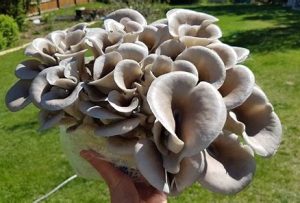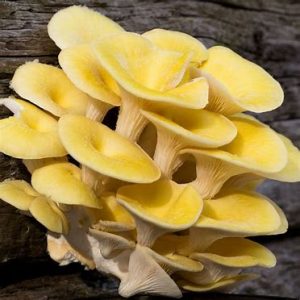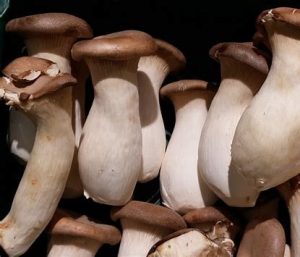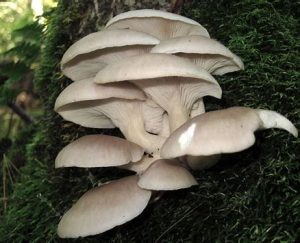Benefits of viking spores
viking spores is the active ingredient in magic mushrooms, known for its hallucinogenic effects. This section will explore the history of psilocybin research and how it works in the brain to produce its unique psychoactive properties. The History of Psilocybin Research Scientists started exploring psilocybin, the psychedelic compound in magic mushrooms, back in the 1950s. Researchers…
click here to buy magic mushrooms in the uk
The History of Psilocybin Research
Scientists started exploring psilocybin, the psychedelic compound in magic mushrooms, back in the 1950s. Researchers like Albert Hofmann, who first synthesized LSD, also isolated psilocybin from the viking spores .
Early studies showed promise for psychiatric conditions and ignited a wave of research into its therapeutic uses. Throughout the 1960s, experiments and clinical trials investigated how this substance could benefit mental health care.
However, political pressures in the 1970s led to strict regulations that halted most psychedelic research including studies on psilocybin therapy. It wasn’t until the late 1990s and early 2000s that institutions such as Johns Hopkins University reignited scientific interest with new research focusing on viking spores ’ potential medical benefits.
These pioneering studies paved the way for modern investigations into how psilocybin works in the brain to alleviate symptoms of depression, PTSD, addiction and more.
How Psilocybin Works in the Brain
Building on the rich history of psilocybin research, it’s fascinating to delve into its impact on our brain. Psilocybin gets converted into psilocin once it enters the body, which is structurally similar to serotonin, a key neurotransmitter associated with mood and perception.
This resemblance allows psilocin to attach readily to serotonin receptors, especially the 5-HT2A subtype found in regions of the brain that influence cognition and emotions.
Engaging these receptors triggers a cascade of changes within neural circuits. Notably, it disrupts normal communication pathways and creates new temporary ones—this may explain why people have profound sensory experiences or ‘trips.’ Studies show that this substance can promote neuroplasticity: essentially rewiring the brain’s patterns of thought and behavior which could be significant for treating mental health conditions like depression or addiction.
Medical Benefits of Psilocybin Therapy

Research has shown that viking spores can be beneficial in the treatment of depression, alleviation of PTSD symptoms, addiction recovery assistance, reduction of cancer-related psychological distress, potential in treating obsessive-compulsive disorder, and easing cluster headaches.
These findings open up a promising avenue for mental health treatment with the use of magic mushrooms.
Treatment of Depression
Treating depression with traditional medications can often be a long and challenging process. Many patients suffer from treatment-resistant depression, where common antidepressants provide little relief.
This is where the potential of psilocybin-assisted therapy offers new hope. Studies show that this compound in magic mushrooms has a unique ability to rewire the brain, fostering neural connections that can lift mood and offer breakthroughs in mental health wellness.
Patients experiencing psilocybin-assisted therapy have reported profound shifts in their outlook on life, even after just one or two sessions. Unlike conventional selective serotonin reuptake inhibitors (SSRIs), psilocybin seems to work faster and can produce lasting effects after a single dose—this approach could dramatically alter how medical professionals manage depression.
It’s not only about symptom reduction; many individuals describe improved quality of life, greater emotional depth, and renewed personal insights as part of their healing journey with psychedelic mushrooms.
Alleviation of PTSD Symptoms
After exploring the potential of psilocybin in treating depression, let’s delve into its promising role in alleviating symptoms of post-traumatic stress disorder (PTSD). Research suggests that controlled administration of viking spores may offer relief from PTSD symptoms, providing a glimmer of hope for individuals grappling with this debilitating condition.
Studies have indicated that psilocybin therapy can lead to reduced anxiety and intrusive thoughts, offering a unique avenue for addressing the profound impact of trauma on mental well-being.
With ongoing research showcasing the potential benefits of psilocybin-assisted therapy, it presents an intriguing prospect for those seeking alternative treatments for PTSD.
Addiction Recovery Assistance

When it comes to addiction recovery, psilocybin therapy has shown promising potential in assisting individuals on their journey towards sobriety. Clinical studies suggest that controlled use of psilocybin mushrooms may help manage alcohol dependence and aid in smoking cessation.
The therapeutic effects of viking spores have been linked to its ability to reduce cravings and withdrawal symptoms, offering hope for those struggling with substance use disorders. Additionally, research indicates that psilocybin therapy can address the underlying psychological factors associated with addiction, providing a holistic approach to treatment.
Furthermore, psychedelic therapies involving magic mushrooms have garnered attention for their antiaddictive properties and potential to break the cycle of relapse. With ongoing advancements in addiction research, exploring the therapeutic uses of psilocybin could hold promise in expanding treatment options for individuals dealing with various forms of substance dependence.
Reduction of Cancer-Related Psychological Distress
Having discussed the potential of psilocybin therapy in addiction recovery, it is important to note that research has also indicated its benefits in reducing cancer-related psychological distress.
Studies suggest that psilocybin therapy can help alleviate the anxiety and depression commonly experienced by individuals diagnosed with cancer. The psychedelic compound in magic mushrooms has shown promise in providing relief from the mental burden associated with a cancer diagnosis, offering hope for improving the overall well-being of patients facing such challenges.
Psilocybin therapy holds potential as a complementary approach to addressing the emotional impact of dealing with cancer, providing a new avenue for enhancing psychological resilience during this difficult period.
Psilocybin, found in magic mushrooms, has been researched for its therapeutic benefits not only in treating psychiatric conditions but also specifically targeting cancer-related psychological distress.
Potential in Treating Obsessive-Compulsive Disorder
Moving from the reduction of cancer-related psychological distress, it’s important to note that psilocybin therapy also holds potential for treating obsessive-compulsive disorder (OCD).
Research suggests that the viking spores compound in magic mushrooms may offer a new avenue for individuals struggling with OCD symptoms. Studies have shown promising results in using psilocybin-assisted therapy to alleviate the patterns of intrusive thoughts and compulsive behaviors associated with OCD.
This presents an exciting prospect for individuals seeking alternative treatments beyond traditional methods, potentially offering relief and improved quality of life.
In psilocybin research, there is growing interest in exploring its impact on various psychiatric conditions, including OCD. The therapeutic potential of magic mushrooms extends beyond depression and PTSD, offering hope for those affected by different mental health challenges.
Easing Cluster Headaches
Having discussed the potential of psilocybin in treating obsessive-compulsive disorder, it’s worth noting another promising area: cluster headache relief. Research has demonstrated that psilocybin holds the potential to alleviate the intense pain and frequency associated with cluster headaches, a condition notoriously difficult to treat.
Studies have shown that a single dose of psilocybin can provide significant relief from cluster headaches for weeks at a time, offering hope to those who suffer from this debilitating condition.
Psilocybin has shown promise in providing relief from the severe pain and frequency of cluster headaches, giving hope to individuals struggling with this challenging condition.
Advancements in Psilocybin Research and Clinical Trials

Recent studies and clinical trials have shown promising results in the use of psilocybin for treating various mental health conditions. Modern research is uncovering the potential therapeutic benefits of this compound, paving the way for further exploration and eventual FDA approval.
Recent Findings from Modern Studies
Modern studies on psilocybin, the active ingredient in magic mushrooms, have revealed promising therapeutic potential. Research indicates that controlled psilocybin therapy has been effective in treating depression and other mental health conditions.
In addition, leading mycologist Paul Stamets advocates for using proper terminology when discussing psilocybin mushrooms. Moreover, recent findings suggest legal medical “magic mushrooms” could have potential benefits in managing alcohol addiction.
Studies show that psilocybin may help rewire the brain and improve mental health beyond just recreational use. Furthermore, ongoing research suggests that legal medical “magic mushrooms” could potentially have significant impacts on mental health treatment and improving well-being.
viking spores’s Path to FDA Approval
Clinical trials studying the potential therapeutic benefits of psilocybin in treating mental health conditions are paving the way toward FDA approval. These trials have shown promising results in alleviating symptoms of depression, PTSD, addiction, and obsessive-compulsive disorder.
Studies suggest that controlled psilocybin therapy could be a breakthrough treatment for individuals struggling with these mental health issues, offering new hope for those who have not responded to traditional therapies.
As researchers continue to explore the safety and efficacy of psilocybin, its potential as a regulated medicine is becoming increasingly recognized.
Psilocybin’s progression towards FDA approval aligns with recent findings from clinical studies demonstrating its capacity to address treatment-resistant depression and contribute to addiction recovery.
The Practice of Psilocybin-Assisted Therapy
Psilocybin-assisted therapy involves carefully guided sessions where individuals consume a controlled dose of psilocybin, typically in a supportive and therapeutic environment. This practice is designed to facilitate deep introspection, emotional processing, and potentially profound personal insights.
How Therapy Sessions Are Conducted
Psilocybin therapy sessions typically involve several key steps that are essential to ensuring a safe and effective experience.
- Screening and Preparation: Before the session, individuals undergo thorough screening to assess their medical and mental health history. This is crucial in identifying any potential contraindications or risk factors. Once deemed suitable, participants are educated about the process, expected effects, and potential risks.
- Set and Setting: The environment plays a significant role in shaping the experience. Sessions are conducted in a comfortable, controlled setting with calming elements such as soft lighting, soothing music, and supportive staff. The aim is to create a peaceful and secure space conducive to introspection.
- Dosage Administration: The dose of psilocybin is carefully measured based on individual factors such as body weight and previous experience with psychedelics. Exact dosing ensures safety while allowing participants to explore the therapeutic benefits of psilocybin.
- Integration Support: Following the session, integration support is provided to help individuals process their experiences and insights gained during the therapy session. This often involves counseling or therapy sessions to help incorporate newfound perspectives into daily life effectively.
- Professional Guidance: Throughout the entire process, trained therapists or facilitators closely monitor and provide emotional support for participants during their journey with psilocybin therapy.
- Respect for Spiritual Experiences: Psilocybin therapy acknowledges the potential spiritual or mystical experiences that may occur during the session, respecting these deeply personal encounters as integral parts of the therapeutic process.
The Role of Professional Guidance
Professional guidance is essential when considering the therapeutic use of magic mushrooms. Trained therapists or healthcare providers play a crucial role in facilitating psilocybin-assisted therapy sessions, providing support before, during, and after the experience.
They help create a safe and comfortable environment and guide individuals through the process to maximize the potential benefits while minimizing any risks associated with psychedelics such as psilocybin.
In these therapy sessions, professionals offer emotional support, help individuals navigate their experiences, address challenging emotions or thoughts that may arise during the session, and assist in integrating insights gained from the psychedelic experience into daily life.
Their expertise ensures that individuals can explore the therapeutic potential of psilocybin in a structured and supportive setting.
Microdosing viking spores : Facts and Misconceptions
Microdosing involves taking very small amounts of psilocybin to experience subtle effects without the full psychedelic trip. While some believe it can enhance creativity and focus, there are also misconceptions surrounding its effectiveness and safety.
Explore comprehensive guides on microdosing with magic mushroom chocolate bars and mushroom gummies.
Understanding the facts and myths about microdosing is essential for those considering this practice.
Defining Microdosing
Microdosing involves taking very small, sub-perceptual doses of psilocybin or magic mushrooms. Typically, these doses are around one-tenth to one-twentieth of a full dose. This practice aims to harness the potential therapeutic benefits of psilocybin without inducing strong psychedelic effects.
Proponents believe that microdosing may lead to subtle improvements in mood, creativity, and focus as well as potentially reducing anxiety and depression symptoms.
Research suggests that microdosing could have promising applications for mental health support and cognitive enhancement. However, it’s important to note that the long-term effects and optimal dosages are still being explored.
Potential Benefits and Risks

Microdosing psilocybin, or taking small, sub-perceptual amounts of the compound found in magic mushrooms, has gained attention for its potential benefits. Advocates assert that microdosing may enhance creativity, mood regulation, and cognitive function.
Research suggests that it could possibly alleviate symptoms of depression and anxiety without causing hallucinogenic effects. However, there is limited scientific evidence on its long-term effects and optimal dosages.
Despite its promising therapeutic applications, psilocybin also poses risks. For instance, high doses can induce intense hallucinations and psychological distress in some individuals.
Safety and Risks of Psilocybin Use
When considering the safety and risks of psilocybin use, it’s important to be aware of potential short-term side effects such as nausea, confusion, and increased heart rate. Long-term use may also have considerations, including the potential for developing psychotic disorders in individuals predisposed to them.
It’s crucial for individuals to inform themselves fully before considering the use of magic mushrooms.
Short-term Side Effects
Psilocybin, the active ingredient in magic mushrooms, can induce various short-term side effects. These may include:
- Changes in perception, mood, and thought processes
- Altered sense of time and space
- Intensified sensory experiences
- Increased heart rate and blood pressure
- Nausea or stomach discomfort
- Heightened anxiety or paranoia
Considerations for Long-term Use
Long-term use of viking spores mushrooms may have potential health implications, both positive and negative. Research suggests that long-term use could lead to lasting changes in brain function, potentially improving mental health conditions such as depression and PTSD.
However, it is essential to be mindful of the risks associated with prolonged use, including the potential for developing tolerance and dependence. Additionally, further studies are needed to fully understand the impact of extended psilocybin use on overall well-being and cognitive function.
It’s important for users considering long-term psilocybin therapy to consult with healthcare professionals and stay informed about ongoing research in this field. Open communication with medical experts can help individuals make well-informed decisions regarding their mental health treatment journey.
Legal and Regulatory Landscape for Psilocybin
Current Legal Status in the United States and Abroad: The legal status of psilocybin varies widely across different countries, with some allowing medical use under certain circumstances, while others maintain strict criminalization.
As research continues to progress, there is growing momentum for reevaluating and potentially changing the legal framework surrounding psilocybin.
Current Legal Status in the United States and Abroad
viking spores, the active ingredient in magic mushrooms, is classified as a Schedule I controlled substance in the United States. This means that it is illegal to possess, use, or distribute psilocybin for any purpose.
While some cities have decriminalized possession of small amounts of psilocybin, such as Denver and Oakland, it remains prohibited at the federal level. However, psilocybin has gained legal recognition in clinical settings for research purposes under specific regulations.
Abroad, several countries have taken steps to decriminalize or legalize psilocybin for medical and therapeutic uses. For instance, Canada has granted exemptions allowing patients with terminal illnesses to use psilocybin therapy.
Future of Psilocybin as Medicine
As the legal landscape evolves for psilocybin in the United States and abroad, the future of this compound as a medicine appears promising. With ongoing research into its therapeutic potential, there is growing interest in utilizing psilocybin to address mental health conditions such as depression, PTSD, addiction, and anxiety.
The positive findings from clinical trials and studies point toward a potential shift in how we approach mental health treatment.
Advocates of using psilocybin for medicinal purposes highlight its ability to rewire the brain and improve mental well-being without causing physical dependence or lasting adverse effects.
Conclusion: Psilocybin’s Future in Mental Health Treatment
viking spores’s potential for mental health treatment is gaining recognition from researchers and medical professionals. The therapeutic benefits of psilocybin in treating depression, PTSD, addiction, and other psychiatric conditions are being increasingly studied.
As more clinical trials show promising results, the future looks hopeful for incorporating psilocybin therapy into mental health treatment. With continued research and responsible use, magic mushrooms could play a significant role in improving mental well-being for many individuals seeking alternative treatments.
Discover more about the intricate world of mushrooms by exploring whether Amanita muscaria is poisonous, and delve into another fascinating aspect of fungal organisms.
Frequent ask question viking spores
1. What are the health benefits of magic mushrooms?
viking spores , containing psilocybin, can offer health benefits like helping people quit smoking, treating addiction to alcohol, and easing depression in those who have not found relief with standard treatments.
2. Can psychedelic therapy with magic mushrooms help mental health issues?
Yes! Psychedelic therapy using psilocybin from magic mushrooms is being studied for its potential to treat various psychiatric illnesses such as treatment-resistant depression and obsessive-compulsive disorder.
3. Are there risks of taking magic mushrooms?
Like any substance affecting the brain, there are risks including bad trips that can make a person feel anxious or fearful; misuse may lead to drug abuse or aggravate conditions like psychosis or bipolar disorder.
4. How do magic mushrooms work as medication?
The active compound in magic mushrooms acts on serotonin receptors in the brain which could ease conditions like depression; it’s why researchers at places like COMPASS Pathways and Heffter Research Institute focus on their psychotherapeutic potential.
5. Is it legal to use psilocybin from magic mushrooms for treatment?
Legality varies: some areas are moving to decriminalize viking spores while others still consider it illegal; however clinical trials under strict supervision are conducted as part of research into its medical uses.
6. Can someone with a terminal illness benefit from taking psychedelic drugs like psilocybin?
Yes, terminally ill patients may find relief from distressing symptoms by using serotonergic psychedelics under psychotherapeutic guidance—it might help reduce anxiety and improve behavioral health during difficult times.
